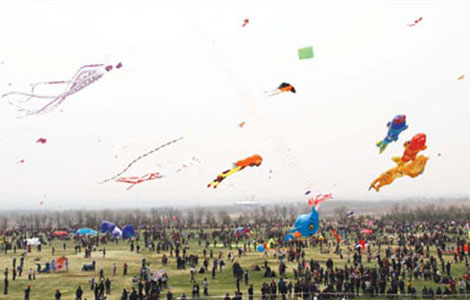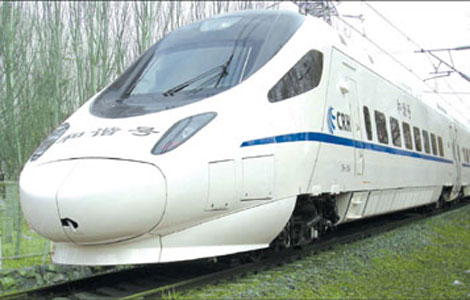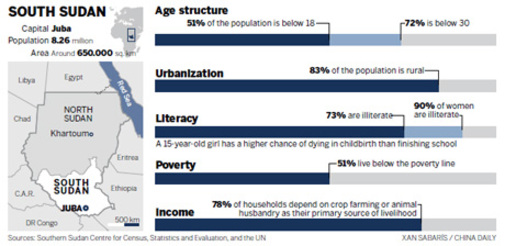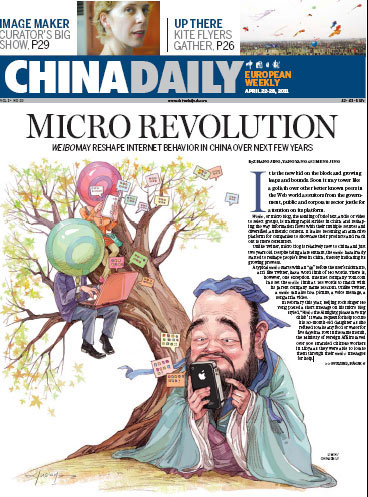Politics
Birth pangs of new nation
Updated: 2011-04-26 07:07
By Zhang Haizhou (China Daily)
Security challenges
But before the economy can grow, the government's top priority may be making sure the territory under its control is secure and safe, as many southern Sudanese are still threatened by tribal clashes and militia wars.
John, the SSTV reporter from eastern Jonglei State, is a victim of such conflicts.
John's father, who was a soldier in the SPLM, was killed in Jonglei in January 2006 when his vehicle was ambushed.
After the tragedy, John had to withdraw from the United States International University in Kenya where he was a third year student on a TV production course, because his father's death meant he had a family of six to take care of.
John said his family "understood" that his father's death was a "sacrifice" for the region's peace.
Achieving peace still looks like a daunting challenge for the south Sudan government.
Clashes between the Ngok-Dinka and Misseriya ethnic groups over the control of Abyei on the north-south border are likely to continue.
And there is daily gunfire in the Upper Nile states, and occasionally in Western Equatorial State at the southern army, the SPLM and the civil population, according to the Citizen, south Sudan's daily newspaper.
In Jonglei, some 200 people, mostly civilians, were killed in February.
Talking about the situation, John said: "We hope peace and the border can be secured".
|
A million people waiting to return home By Zhang Haizhou Khartoum/Abyei, Sudan - The crucifix worn by Jerome Ganago makes him quite rare in northern Sudan, where the majority of the population are Muslims. On a sunny afternoon, Ganago, originally from the city of Wau in south Sudan, was waiting to go home. Along with his friend Elias Daniel, Ganago, 55, was sitting in a tented area in the suburbs of Khartoum that is currently home to around 1,000 people from the southern city. "We are waiting for our government, as they will send vehicles and trucks here to take us and our stuff home," said Daniel, 33, as he pointed to piles of furniture. As south Sudan prepares to declare independence on July 9, many southerners, including Ganago and Daniel, are looking forward to going home. Barnaba Marial Benjamin, south Sudan's information minister and the government's spokesman, said that over a million people have already returned to the south, and around one million more are waiting to make the journey by bus, barge or boat. But Ganago and his neighbors are set to wait longer in Khartoum, as Benjamin said the process of return and reintegration "cannot finish within one year". "They'll go back to their villages, where they have their land and relatives", Benjamin added. Juba Port now looks like a huge refugee camp, with tents scattered around. Returnees are also coming home from other parts of the world. On a plane from the Ethiopian capital of Addis Ababa to Juba on March 19, two people were heading back to south Sudan's Jonglei State after more than a decade in the US state of Nebraska. But handling such a large number of returnees presents south Sudan, beset with food shortages and underdevelopment, with a huge challenge. Georg Charpentier, the UN humanitarian coordinator in Sudan, said: "The greatest challenge is ensuring the successful reintegration of returnees in state capitals and counties of origin in a way that is sustainable." Despite the challenges and the possible hard life, many returnees are optimistic about the future of their homeland. "Because this is the motherland," explained Rech Chul, an 18-year-old who was born in Khartoum. He returned to Abyei town two months ago with his younger cousin Jok Kon, 17. Although fighting continues in Abyei, which is claimed both by the north and the south, about 37,000 people have already returned from northern Sudan. Currently living in their grandfather's house, Chul and Kon said their greatest wish was to begin their new life with their own land. Apart from having no land in their war-torn hometown, the teenagers said the biggest challenge they faced by returning home was language, as few people speak Arabic in Abyei town. But the cousins are confident about their future and they are dreaming big. Kon said he hopes to be a doctor while Chul said he wanted to become south Sudan's foreign minister. "If I became the foreign minister, I would build a cooperative relationship between the north and the south," Chul told China Daily. Their optimism is shared in Khartoum by Ganago and Daniel, who said they are "very happy" about south Sudan's impending independence. In order to go back home, Ganago has sold his Khartoum property, in which he had lived for more than two years. "We are very confident about our new country. If it is not good, I'll make it good myself," he stressed. |
E-paper

Blowing in the wind
High-Flyers from around the world recently traveled to home of the kite for a very special event.
Image maker
Changing fortunes
Two motherlands
Specials

Models gear up car sales
Beauty helps steer buyers as market accelerates.

Urban breathing space
City park at heart of Changchun positions itself as top tourism attraction

On a roll
Auto hub Changchun also sets its sight on taking lead in railway sector

